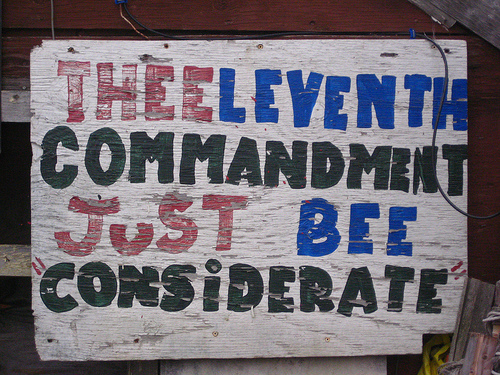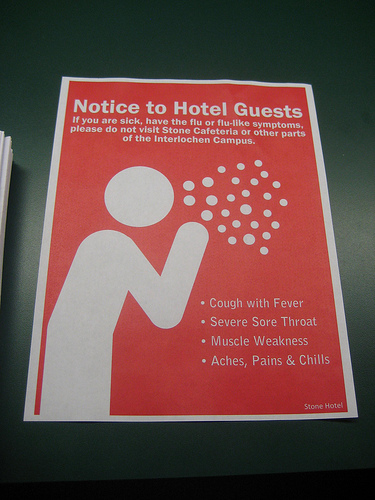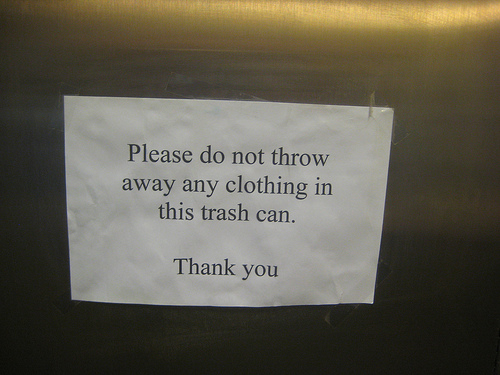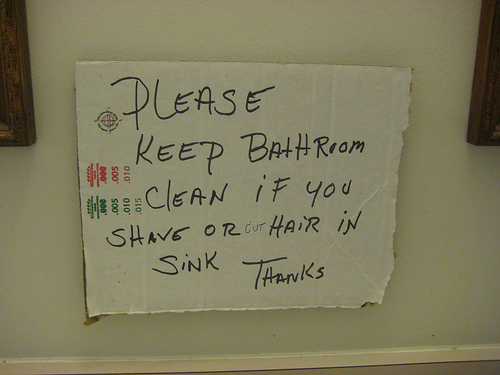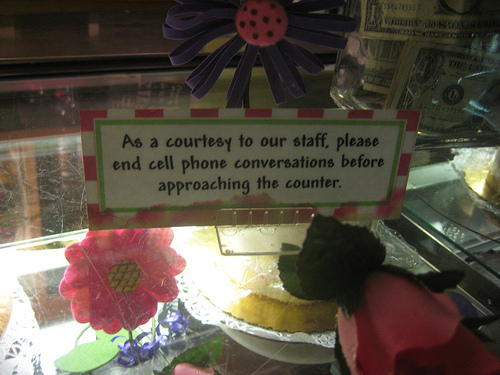In a fit of pre-Hallowe'en whimsy, Etiquetteer began thinking today of a few faux pas that might make interesting costumes: Emily Post Spills the Sauce
The original Doyenne of American Etiquette, Emily Post Herself, spilled her lingonberry dessert all over herself back in 1938. Unfortunately she wasn't alone at the time, but attending the New York Gourmet Society's annual banquet . . . as guest speaker. The press had a field day, as you can imagine, but Etiquetteer is delighted to report that Mrs. Post refused to cast blame on the waiter since it was her own fault. You can appear as Mrs. Post in a matronly evening gown with a huge splotch of sauce on the front. Carelessly brandish the sauce boat about for added effect, if you aren't drinking a cocktail out of it.
What Is Needed: An evening gown in the style of the late 1930s, silver gravy boat, lingonberry sauce (or some equivalent), red evening shoes (Mrs. Post's favorite shoes were red).
White House Maitre'd with Slip
Etiquetteer is horrified not to locate the reference, but recalls well the story of a lady at a White House function one evening whose slip disengaged from her person and gently cascaded to the floor. It just lay there on the floor under the gaze of the multitude until the maitre'd (undoubtedly either Charles Ficklin or Alonzo Fields) strode to center of the floor, picked up the slip, folded it over his arm as though it were a napkin, and walked out of the room.
Top-Popping on the Dance Floor
Leaking Bag of Lemons
One night at St. Germain during the reign of Louis XIII, a charming Mlle. de La Fayette found something so funny that she couldn't stop laughing until she had . . . ahem . . . lost control of herself. This resulted in a huge and very visible puddle around her chair. The Queen made so much fun of her that one of Mlle. de La Fayette's friends said right out loud that Mlle. de La Fayette's bag of lemons must have been squeezed.
What Is Needed: 17th century court dress (basically cinch a bed pillow over each hip with a belt and rig up some old drapes for a skirt), big hair (real or manufactured), string bag of half a dozen lemons to hang from the waist, puddle (or just wet the back of the skirt before arrival).
Elbows on the Table
One of the more flouted etiquette conventions. Find a couple tiny dollhouse tables to stick onto your elbows, and you're all set!
What Is Needed: Clothes of your choice, two dollhouse tables, sleeve garters to secure tables into place.
References: Emily Post by Laura Claridge, Upstairs at the White House by J.B. West, History Laid Bare: Love, Sex, and Perversity from the Ancient Etruscans to Warren G. Harding by Richard Zacks.
Wondering what other faux pas might come up this Hallowe'en? Please drop Etiquetteer a line at queries_at_etiquetteer_dot_com.






